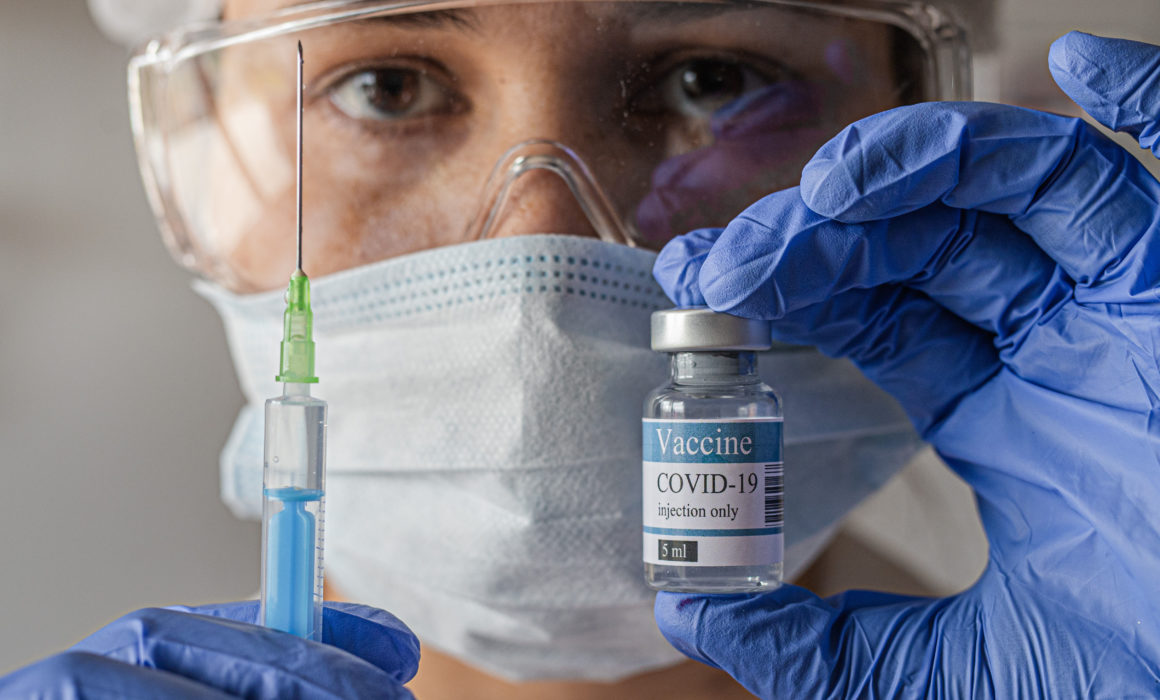
By Jonathan Saltzman Boston Globe
A COVID-19 vaccine developed by the Cambridge biotech Moderna in a collaboration with the National Institutes of Health spurred immune responses in healthy subjects who received it, although it caused mild side effects in many of them, according to the first published data about the small, early-stage clinical trial.
The vaccine, which was the first of at least 21 to enter clinical trials, produced antibodies in all 45 patients who received two shots 28 days apart in March, said the study, published in the New England Journal of Medicine. Three groups of 15 volunteers received varying dosages.
“These safety and immunogenicity findings support advancement of the mRNA-1273 vaccine to later-stage clinical trials,” the article said, using the identification number for the experimental vaccine.
The vaccine was developed by Moderna and the National Institute of Allergy and Infectious Diseases, which ran the Phase 1 trial. Moderna reported some of the results in mid-May, and the vaccine is in mid-stage trials, with a final stage scheduled to start on 30,000 adults July 27.
“No matter how you slice this, this is good news,” Dr. Anthony Fauci, the US government’s leading infectious disease specialist, told the Associated Press.
Moderna, whose stock is up more than 200 percent this year as the company has blitzed the media and fueled expectations, had drawn criticism for failing to share backup data. That’s what the journal published Tuesday.
It showed that after volunteers received a second shot, neutralizing antibodies were detected in all of the participants who were evaluated, at levels far exceeding those in 38 patients with confirmed diagnoses of COVID-19.
The authors of the study, however, noted that they were unable to say how long that immune response lasted, a crucial question when weighing the effectiveness of a vaccine. The participants will be monitored for a year after they received their second shot to see if they remain immune
Dr. Penny Heaton, chief executive of the Bill & Melinda Gates Medical Research Institute in Cambridge, wrote in an editorial in the NEJM that the data were promising, but she urged caution.
“Many phase 3 trials fail because of incorrect identification of the dose that best balances safety and efficacy,” she wrote.
Unlike traditional vaccines, which use a weakened or killed virus to stimulate an immune response, Moderna’s vaccine relies on genetic material called messenger RNA, or mRNA. The vaccine inserts portions of the coronavirus’s RNA into cells, which then manufacture a piece of the virus to generate antibodies.
The company, which has no products on the market — not uncommon in the biotech world — set a drug industry record by producing its vaccine in 42 days after receiving the genetic sequence of the virus. But no messenger RNA vaccine has ever been approved to prevent any disease, although Moderna is one of several seeking to do so with the coronavirus.
Other mRNA vaccines being tested include one developed by the drug giant Pfizer and the German biotech firm BioNTech.
More than half of the 45 participants who received Moderna’s vaccine reported side effects that included fatigue, chills, headaches, body aches, and pain at the injection site. This was more common after the second vaccination, particularly at the highest dose, but none of the side effects were considered serious.
The 45 volunteers in the early-stage trial, in Seattle, received doses of 25 micograms, 100 micrograms, and 250 micrograms.
Dr. Tal Zaks, chief medical officer of Moderna, said the Phase 1 data “demonstrate that vaccination with mRNA-1273 elicits a robust immune response across all dose levels and clearly support the choice” of 100-micrograms in a prime and boost regimen as the optimal dose for the Phase 3 study.
“We look forward to beginning our Phase 3 study of mRNA-1273 this month to demonstrate our vaccine’s ability to significantly reduce the risk of COVID-19 disease,” he said.
The project has received $483 million from the federal Biomedical Advanced Research and Development Authority. It is one of at least four potential COVID-19 vaccines that have the backing of Operation Warp Speed, a federal government initiative to speed up the development of countermeasures against the virus.
Moderna on Tuesday posted details of its final-stage vaccine trial on a government website, confirming that the widely anticipated trial was still on track to begin this month. Moderna said the trial is expected to begin on July 27 and will will enroll 30,000 adults at high risk of contracting the coronavirus.
Trial sites will begin registering people next week, a Moderna spokesman said.
Read our article in Russian.